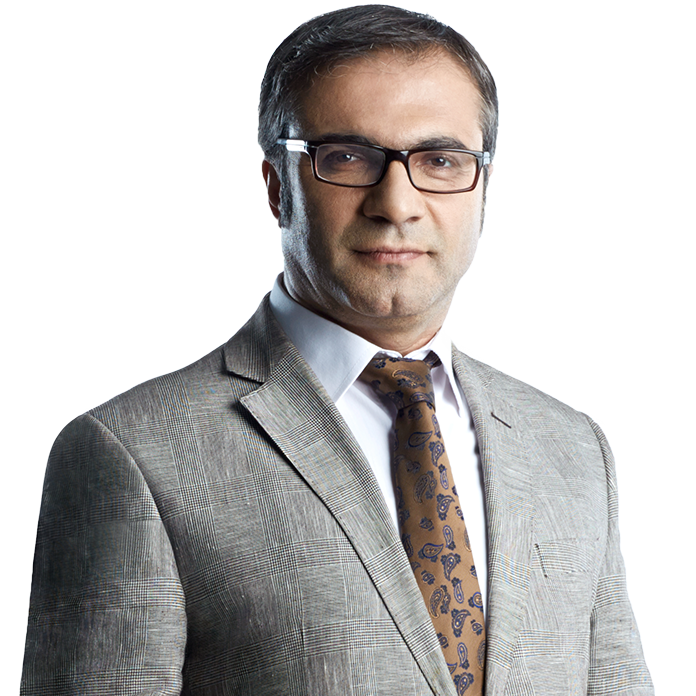
- 22.12.2024, Sunday
- 17:54
The ‘others’ of European host countries: Muslim guest workers
10:4525/10/2020, Pazar
U: 25/10/2020, Pazar
Next article
Ergün Yıldırım

A sociology study conducted in Germany that was published this month provides quite enlightening information with respect to the state of Muslim immigrants in Europe. The study titled, “A Threat to the Occident? Comparing Human Values of Muslim Immigrants, Christian, and Non-religious Natives in Western Europe,” was carried out at Goethe University’s Faculty of Social Sciences by Christian S. Czymara, and Marcus Eisentraut of the Leibniz Institute for the Social Sciences. The study that heavily
A sociology study conducted in Germany that was published this month provides quite enlightening information with respect to the state of Muslim immigrants in Europe. The study titled, “A Threat to the Occident? Comparing Human Values of Muslim Immigrants, Christian, and Non-religious Natives in Western Europe,” was carried out at Goethe University’s Faculty of Social Sciences by Christian S. Czymara, and Marcus Eisentraut of the Leibniz Institute for the Social Sciences. The study that heavily draws upon the findings of studies conducted within the last decade provides substantially objective information, while it also reflects European awareness and attitudes. Hence, it is important in this sense as well, because it presents us with the opportunity to learn both about the state of Muslim immigrants, and the relevant European awareness during this period of rising conflict.
Focusing on “human values,” the study explores relations between Muslim immigrants, religious and non-religious European natives. Four European countries are the focus of the study: Belgium, France, Germany, and Sweden; educated, wealthy, and industrialized communities. The Muslims in these four countries are considerably younger than the average population and have higher fertility rates. Political elites as well as the general public have concerns about demographic change in the future in terms of the increased inflow of Muslim immigrants. There are no serious problems regarding values in Belgium between Muslims and Christian as well as non-religious native Belgians. The immigrants in France emerge as a result of France's colonial history. France's strong tradition of secularism and the strict separation of church and state lead to policies that are rather restrictive for all religions, including Islam. There is no religious education in schools, and wearing a headscarf is banned at schools. Thus, tensions between secularists and religious groups, and Muslims in particular become more prominent. Religious fundamentalism is also particularly widespread among immigrant Muslims in France. When the headscarf was banned at schools in France, the French public did not show any reaction, because the terrorist attacks led to a certain opinion among the community.
Germany identifies Muslim immigrants, the overwhelming majority from Turkey, as guest workers (Gastarbeiter). These immigrants were recruited to contribute to Germany's labor market. Religious fundamentalism is less prominent in Germany compared to other European countries, and the German public is mostly positive or neutral towards Muslim immigrants. As a matter of fact, Germany took in a large number of Muslim immigrants in 2015-2016.
Finally, Sweden's Muslims tend to exhibit rather low levels of religious fundamentalism, and Swedish natives adopt a friendlier attitude towards Muslims in Europe. Most of the Muslims in Sweden are asylum seekers, with only few entering the country as “guest workers.” Sweden is a country with a strong social welfare system and multicultural values and practices.
The study thus draws attention to the various immigration experiences of these countries. What is interesting are the convictions made based on the findings obtained regarding the relations discussed. These are particularly convctions made concerning Muslim immigrants. Accordingly, individualism, liberalism, and social trust, which are the common traits of these countries, developed with the atrophy of the Church’s historical kin-based institutions. In contrast, the level of kinship and collectivism among Muslims is high. Muslims’ insistence on self-transcendence and tradition lead to deep conservation values. This strengthens submission to transcendental authority, which protects individuals from uncertainty. Muslim immigrants are much more conservative and hold transcendental and tradition values more dear compared to Christians. Hedonist values score low as they are associated with just having a good time and doing things that gives one pleasure. These are considered incompatible with religion. Yet, Muslims in Europe tend to exhibit higher values of traditionalism and fundamentalism compared to Christians.
Muslims have a literal interpretation of God and tradition, and consider the ummah (Muslim community) as a collective belonging. Fundamentalism and traditionalism are seen more commonly among religious European Muslims. Europeans tend to present a negative attitude towards Muslim immigrants. Violence and hate crimes are targeted against Muslims. The rhetoric of political elites, especially on the far-right, towards Muslims is often hostile, and is linked to “Islamic terrorism.” The universalism of Muslims’ self-transcendence supports the “discriminatory universalism” hypothesis.
Muslims’ settlement within this sacred universalism becomes negative with “discriminatory universality.” We see how science is inclined to take an ideological position. European social theorists reflect the centralization of European awareness. While European values are called “human values,” the universal belonging of Muslims is referred to as “universal discrimination.” They are the host while Muslims immigrants are “guest workers.” Regardless of how many generations pass, they remain immigrants, guest workers. In any circumstance, they are the host’s “immigrant other.” Thus, after Jews, refugees, Muslim immigrants are the “other” of modern Europe, which has established itself within otherness.
#Muslim
#immigrants
#guest workers
#Europe
#Edward Said
#Occident
#Orient
LEGAL NOTICE
The BIST name and logo are protected under the "Protected Trademark Certificate" and cannot be used, quoted, or altered without permission.All rights to the information disclosed under the BIST name are entirely owned by BIST and cannot be republished. Market data is provided by iDealdata Financial Technologies Inc. BIST stock data is delayed by 15 minutes.
